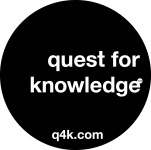Learn about the inner workings and capabilities of data catalogs, along with mastering their utilization for data discovery, classification, and cataloging across multiple data stores both on premises, across multiple clouds, and at the edge.
Description
This 1-day course looks in detail at what a data catalog is and what the main reasons are for needing one. In particular, we will look at the challenge companies are dealing with respect to data complexity and the need to implement both an enterprise data governance program and provide technologies to help people find, engineer, provision and consume ‘business ready’ data for both analytical and operational use cases.
Why attend
You will learn:
- How data catalogs work and what their capabilities are?
- How to use data catalogs to discover, classify and catalog data in multiple data stores both on-premises, across multiple clouds, and at the edge?
- How to use data catalogs in an enterprise data governance program to systematically classify data and set policies to govern classified data and content across their distributed data estate from a single place. This includes automatic discovery and classification of sensitive data, governance of data access security, data privacy, data loss prevention, data sharing, data usage, data retention, and data quality?
- How to use data catalogs to discover data they can engineer in data integration pipelines to produce data products that can be published in a data marketplace?
Who should attend
This course is intended for business and IT professionals responsible for data engineering, data provisioning and enterprise data governance including data access security, data privacy, data sharing, data usage, data retention, data quality of both structured data and content. This includes Chief Data Officers, Citizen and professional IT Data Engineers, Data Architects, Data Scientists, Heads of Data Governance, Data Stewards, Solution Architects and Enterprise Architects.
Prerequisites
This course assumes a basic understanding of data governance, data management, metadata, data warehousing, data cleansing, data integration, etc.
Related Content
What is the role of a Data Catalog in Data Governance programs?
In recent years, numerous vendors have introduced data catalog software, resulting in a market now comprising over 40 products. But what exactly is this software, and what drives its necessity? Mike Ferguson explains this and more in this video.
